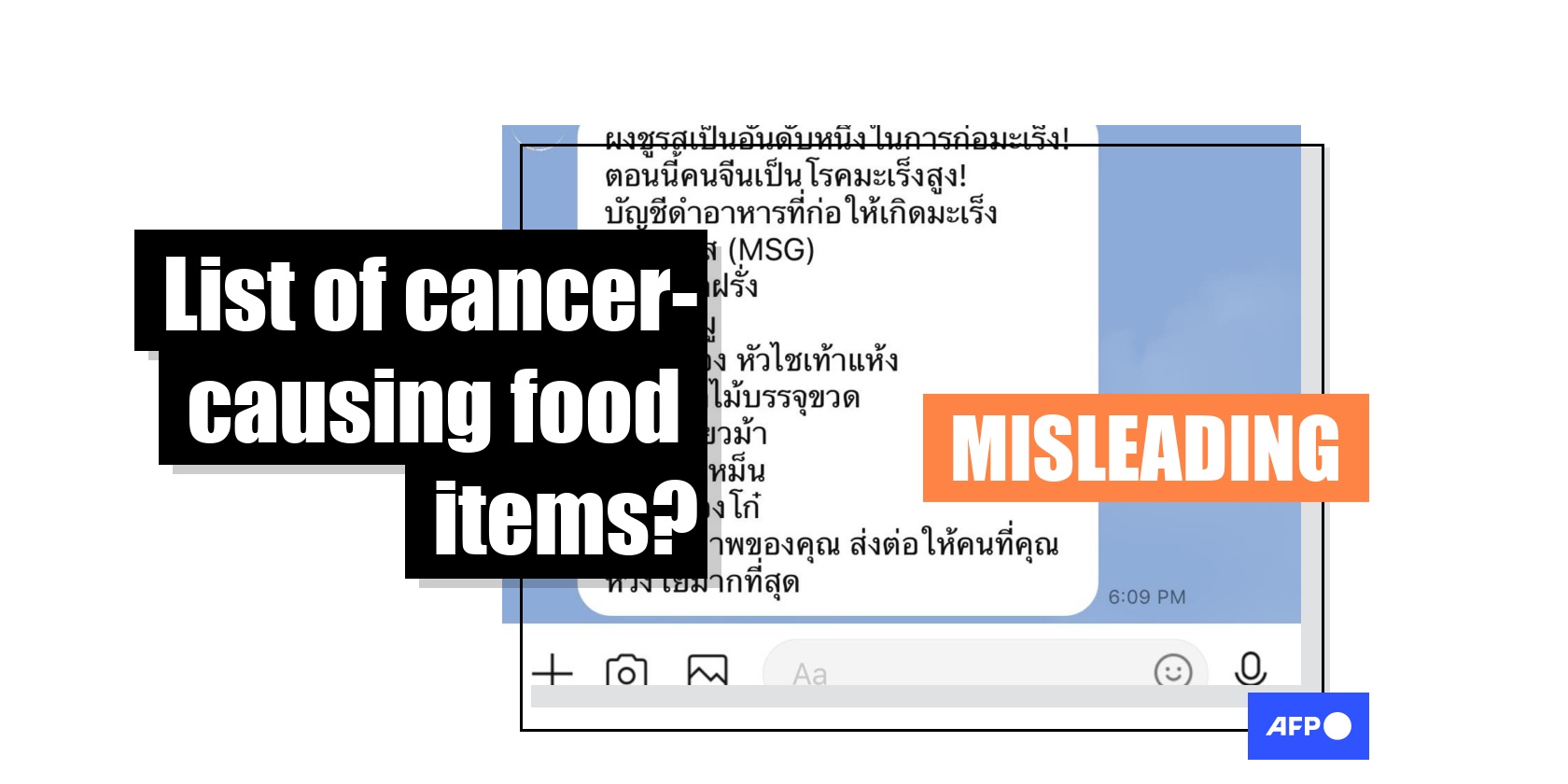
'Carcinogenic food items' list is not evidence-based, health experts say
- This article is more than three years old.
- Published on June 22, 2022 at 04:54
- Updated on June 22, 2022 at 05:09
- 2 min read
- By AFP Thailand
"MSG is the number one cancer agent," reads the Thai-language Facebook post shared here on May 16.
The post claims many Chinese people are diagnosed with cancer, and lists seven items -- including various Asian foods -- that it claims are carcinogens: chewing gum, pork liver, fermented vegetables, bottled fruit juice, fermented eggs, stinky tofu and fried dough sticks.
"Pass [the list] on to the people you care most about," the post says.

The same claim was also shared on Facebook here, here and here as well as on the messaging app Line.
"And why was this allowed to be sold? I don't understand why they would later warn us that it is dangerous. What for? I don't understand," one Thai Facebook user wrote in a comment.
"The items mentioned here are all Thai delicacies," reads another comment.
But the claim is misleading.
Not based on evidence
According to the US Food and Drug Administration, monosodium glutamate (MSG) is "generally recognized as safe".
It says on its website that although "many people identify themselves as sensitive to MSG, in studies with such individuals given MSG or a placebo, scientists have not been able to consistently trigger reactions".
Nattha Pipopchaiyasit, head of the Nutrition Science Group at the National Cancer Institute of Thailand, told AFP that "there is no item on this list which, by itself, is proven to be a cause of cancer."
She added that there are items on the list that should be eaten in moderation.
"MSG can be classified as a type of salt so we must be wary of our sodium intake," she said. "Consuming too much fried food is not recommended and fermentation can increase the salt content."
Nicha Zungsontiporn, a lecturer from the oncology division of Chulalongkorn University and The King Chulalongkorn Memorial Hospital, also told AFP that the claim is "not based on scientific evidence".
But Nicha noted that pickled vegetables are considered a possible carcinogenic agent by the International Agency for Research on Cancer (IARC) -- the World Health Organization's specialised cancer agency.
The IARC measures the strength of evidence to support a substance's potential for causing cancer, not the probability that cancer will occur.
The agency analysed Asian pickled vegetables in 1993 and found conflicting evidence from several studies on the association between the food and cancer types.
"There is limited evidence in humans for the carcinogenicity of pickled vegetables as prepared traditionally in Asia," reads the report.
As of June 21, none of the other seven items on the list in the misleading posts appears in the IARC's database.
Sure and Share, fact checkers with the Thai news agency MCOT, also debunked the claim in November 2020.
Copyright © AFP 2017-2026. Any commercial use of this content requires a subscription. Click here to find out more.
Is there content that you would like AFP to fact-check? Get in touch.
Contact us
